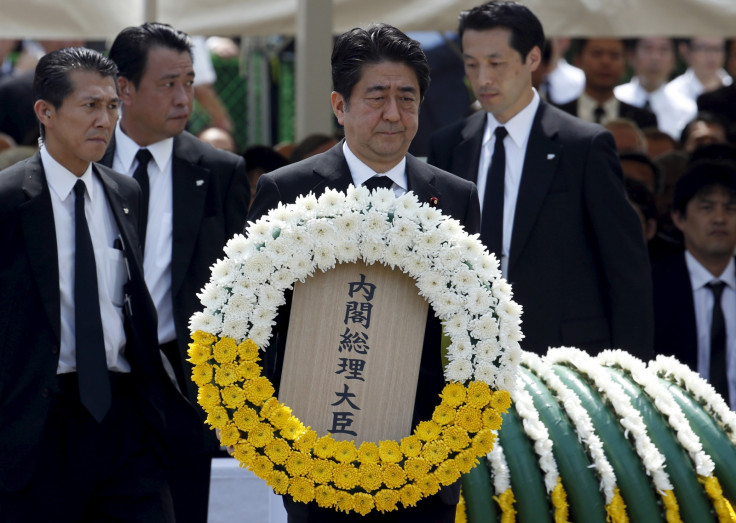Nagasaki survivor Sumiteru Taniguchi warns plans to scrap Japanese pacifist constitution will lead to war

A survivor of the Nagasaki atomic bomb warned Japanese Prime Minister Shinzo Abe that plans to alter the country's post-war pacifist constitution would "lead to war".
At a ceremony to mark the 70th anniversary of the attack, which killed an estimated 80,000 people, 86-year-old survivor Sumiteru Taniguchi said Abe's plans to alter the constitution which only allows military force for self defence went against the wishes of the Japanese people.
After describing the horrific injuries he suffered in the blast on 9 August 1945, which left skin hanging in shreds from his body, Taniguchi addressed Abe.
"We cannot accept this," he said of the proposed bill.
"The security bills which the government is trying to push through would jeopardise our long-time movement for nuclear abolition and hopes of hibakusha (atom-bomb survivors). I cannot tolerate the bills."
The new bill would allow Japan to provide military support to allies who come under attack.
Nagasaki mayor Tomihisa Taue earlier delivered a peace declaration at the ceremony, and said there was "widespread unease" about the legislation.
"Worries and anxieties are now spreading among us that this pledge made 70 years ago and the principle for peace in the Japanese constitution may be now undermined," he said to loud applause.
Representatives of 75 countries, including US Ambassador Caroline Kennedy laid wreaths at the ceremony, which took place under a white canopy in Nagasaki Peace Park.
Abe said that his government was committed to nuclear disarmament, and would continue to ban the production of the weapons in the country.
"As the only country attacked with an atomic bomb in war, I am renewing our determination to lead the global effort of nuclear disarmament, to create a world without such weapons," Mr Abe said.
The bomb, dubbed Fat Man, dropped on Nagasaki destroyed a third of the city, killing tens of thousands instantly, with many more subsequently dying of radiation poisoning.
It came three days after B-29 bomber Enola Gay dropped atomic bomb Little Boy on Hiroshima, which killed an estimated 140,000 people.
On 15 August 1945, Japan surrendered. Debate still rages on whether the US was right to launch the atomic attacks against Japan, with critics claiming that Japan was close to military capitulation, while defenders argue that it saved thousands of US lives which would have been lost in a land invasion of Japan.
© Copyright IBTimes 2025. All rights reserved.






















